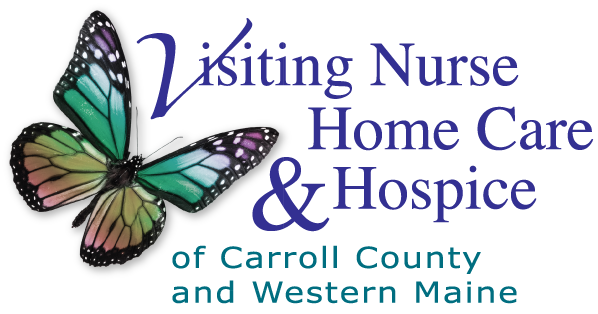Let Your Wishes Be Known on National Healthcare Decisions Day
March 12, 2020
)
Modern medicine can do amazing things, but that can also require some very difficult decisions. Your loved ones can’t act on your wishes unless they know what they are. It starts with a conversation, talking about your values and experiences, and what’s important to you. It can be a bit scary at first, but it’s a great gift for the people who care about you.
On April 16, National Healthcare Decisions Day, that’s the message that Visiting Nurse Home Care & Hospice wants to share with the community. The timing of the day, coinciding with when federal taxes are due to be paid annually, was inspired by Benjamin Franklin’s quip that “nothing in life is certain but death and taxes.”
All adults should discuss and document their healthcare wishes in the event of a crisis. Accidents and acute illness can happen to anyone at any time, but far too few adults have done anything to plan ahead. Various studies suggest that only about a quarter of all adults have engaged in advance care planning.
Sandy Ruka, Executive Director of VNHCH, shared “Advance care planning is more than making a DNR (do not resuscitate) decision. It lays the groundwork for what’s important to you. What is your minimum quality of life requirement? What are you willing to go through? Ask yourself, ‘If I couldn’t do THIS, life would not be worth living.’ It’s a very individual choice.”
“It may be difficult to talk about it, but it can make a bad situation easier for loved ones and family in the wake of an accident or illness. While advance care planning includes decisions around end of life care, it also includes an individual’s wishes for any event in which they cannot speak for themselves.”
Advance care directives are often developed in tandem with estate planning with an attorney. However, it is not necessary to hire a lawyer to execute these documents. In fact, VNHCH offers appointments with an Advance Care Planning Advocate for more information or to complete forms free of charge. Their website includes information including forms, resource links and videos providing many options for those wishing to learn more: https://www.vnhch.org/advance-care-planning.
The National Healthcare Decision Day website also offers free tools that are available to start and structure the conversations, and free advance directive forms for every state and several particular interests are available to document the discussion. These are all available at www.nhdd.org. Specifically, the short videos are an excellent way to start the conversation with loved ones.The hardest part is often just raising the topic, which is how National Healthcare Decision Day can help. It creates a reason to “have the talk” and provides the tools to do it.
What is Advance Care Planning?
Advance care planning is making decisions about the care you would want to receive if you become unable to speak for yourself. These are your decisions to make, regardless of what you choose for your care, and the decisions are based on your personal values, preferences, and discussions with friends and family.
Advance care planning involves having a conversation with your loved ones about your preferences, and then documenting them with a document called an Advance Directive. In order to complete an Advance Directive you must identify the types of treatments you want and don’t want at the end of your life. It’s comprised of your Living Will and Health Care Proxy.
A Living Will details the types of medical treatments you would like or not like at the end of life, specifically in terms of life-support treatments.
A Health Care Proxy is someone who will make healthcare decisions on your behalf if you are no longer be able to make your own decisions.
VNHCH provides free advance care directives to community members at their offices and at other locations around the Valley. Call 603-356-7006 for more information. Getting Advance Care Directives completed is free and can be done at no cost.
For more information about VNHCH services, visit the website at www.vnhch.org or call 603-356-7006 or 800-499-4171.
